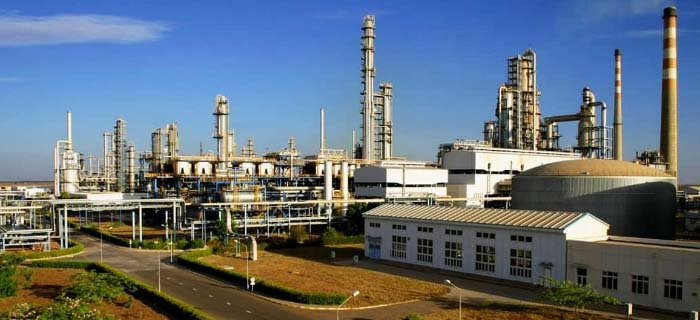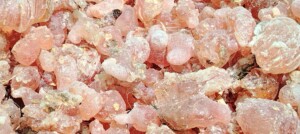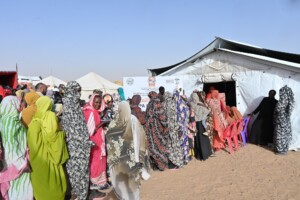Pipeline sabotage in Kordofan shuts Sudan oil refinery
A major section of the Khartoum Petroleum Refinery that processes Nile Blend crude oil has been shut down after sabotage to the pipeline in the area of Kharasana in Keilak, West Kordofan. The closure has prompted fears of technical damage to the infrastructure, environmental risks, and is expected to impact the supply of fuel and cooking gas in Sudan. The director of the refinery, Munira Mahmoud, told reporters on Monday that the second section of the refinery, which processes crude oil coming from the area of the West Kordofan capital El Fula, continues to work normally.
 Khartoum oil refinery (File photo: SUNA)
Khartoum oil refinery (File photo: SUNA)
A major section of the Khartoum Petroleum Refinery that processes Nile Blend crude oil has been shut down after sabotage to the pipeline in the area of Kharasana in Keilak, West Kordofan. The closure has prompted fears of technical damage to the infrastructure, environmental risks, and is expected to impact the supply of fuel and cooking gas in Sudan. The director of the refinery, Munira Mahmoud, told reporters on Monday that the second section of the refinery, which processes crude oil coming from the area of the West Kordofan capital El Fula, continues to work normally.
Engineer El Taher Abulhasan confirmed that sabotage was the reason for stopping the pipeline carrying the Nile Blend crude*. He said that the pipeline is operated by PETCO, one of the companies of the Sudanese Oil Corporation, and warned that “remnants of the sabotage” may cause environmental problems in the area.
The Oil Workers Association reported last week that protesters closed the El Neem, Ed Dafra, and Balila oil fields in West Kordofan on Thursday morning. The pipeline connecting the Heglig-Khartoum Refinery and Port Sudan was also blocked on Thursday.
The Association said in a statement via social media that this pipeline transports most of Sudan’s oil production, and part of the oil production of South Sudan, to the Khartoum refinery and Port Sudan – about 75,000 barrels a day. The statement called on the oil engineers to expedite the repair of the pipeline warning of the technical consequences that “may reach the stage of a disaster”.
The closure of the El Neem, Dafra, and Balila oil fields is causing a loss of about 7,000 barrels a day, in addition to damage caused to the El Neem-Ed Dafra and the Ed Dafra-Heglig pipelines by suspension of the oil flow.
The Oil Workers Association clarified in a social media statement that although the workers were able to maintain and restart the Nile Blend pipeline, this was not enough to avoid the refinery’s suspension, as the flow of Nile Blend crude stock decreased below the minimum required for its operation.
The association warned that this halt will result in serious consequences for the availability of oil products, including fuel and cooking gas, and said that “the Sudanese people will bear the brunt of the burden in the coming days”.
The statement accused the acting Minister of Energy and Oil, Mohamed Abdallah, and “the opportunists around him” of ignoring reports about the deteriorating security situation in the Neem, Balila and Dafra oil fields.
Border dispute
Misseriya youth protesters involved in a border dispute with the Hamar tribe stormed the Um Adara oil field in West Kordofan on October 6, forcing the station to halt its activities and detaining the oil workers. The oil pipeline transporting oil from the station has also been closed down, which might cause severe technical issues and permanent damage.
Following a conflict concerning the demarcation of the border between the Hamar and Misseriya herders tribes in the area, fighting broke out in Abu Zabad on September 11. The clashes that lasted until the next morning, left at least six people dead. More than 20 others were injured. Recently, Hamar held a series of protests to demand a new, Central Kordofan state.
Hamar Nazir Abdelgader Mansour, told Radio Dabanga in August that the demarcation would almost certainly lead to the expropriation of large areas of land belonging to the Hamar, in favour of the Misseriya.
Despite Hamar requests to discuss the issue, the unilateral committee proceeded to redefine the borders. The Hamar then launched a number of protests in the state, including the closure of the En Nehoud-El Obeid road, and sent a delegation to Khartoum to bring the matter before the Sovereignty Council.
Sovereignty Council member Shamseldin El Kabbashi responded on August 31 by suspending the demarcation process. The Misseriya now demand the cancellation of this decision.
Conflict and tension surrounding the oil industry in Kordofan had been a bone of contention for many years. In 2011, an armed group belonging to the Misseriya tribe opened fire on workers in a Chinese oil field in South Kordofan’s Balila area, which left a Chinese engineer dead and three other workers injured. They demanded that the (Al Bashir regime) government reverse its policy to deny employment opportunities to local residents in the oil fields, which activists said, “are bringing employment opportunities to the people in the north, while thousands of graduates in the region are unemployed”.
* Nile Blend is a paraffinic crude oil with a high wax content and high pour point. Sudan produces mostly Nile blend, and also the less valuable Dar blend, crude oils, which differ in density, specific gravity, viscosity and pour point, and chemical content.











 and then
and then